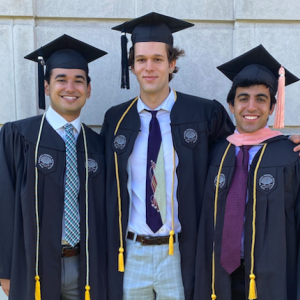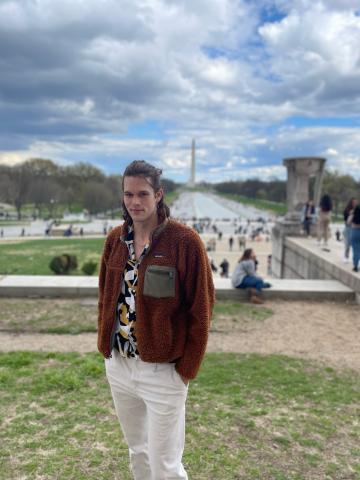When Kyle Barclay (CWR ’21) chose Case Western Reserve for his undergraduate degrees in chemical biology and Chinese, he knew he wanted to study abroad.
Once on campus, Barclay diligently planned his courses, met with academic advisors and was accepted into one of the university’s cultural exchange partnerships, the Chinese Government Scholarship Program, for his senior year. Then the pandemic hit, and his dream—nearly 10 years in the making—was shattered.
Having studied Mandarin since seventh grade, Barclay was deeply disappointed. “But if it hadn’t happened this way,” he said, “I never would have applied for the Fulbright program.”
Starting in September, Barclay will spend one year living and working in Taiwan through Fulbright—a program sponsored by the U.S. government which gives scholars an opportunity to conduct research, teach and study in approximately 140 countries.
Barclay was awarded the English Teaching Assistantship, and will work alongside a local teacher with elementary and middle school children. While speaking Chinese is not a requirement for the program, he is confident it helped set his application apart.
That, and having a recommendation letter from recent Fulbright Scholar and trusted advisor Rekha Srinivasan, a senior instructor and the James Stephen Swinehart, PhD, Professorial Teaching Fellow in Chemistry at the College of Arts and Sciences.
Srinivasan shared with Barclay how highly she valued her own Fulbright experience in India and encouraged him to apply. With his plans to attend medical school, Barclay realized this may be his last opportunity to travel for several years.
While he waits for his Fulbright training to begin in August, he is working as an emergency department technician at a hospital in Rockville, Maryland, sharpening his medical knowledge—and occasionally applying his Mandarin skills.
“I’m not a certified medical translator,” Barclay said, “but sometimes while we’re listening to the hold music for the telephone translator, I’ll make introductions and ask a few questions to help the patient feel more comfortable.”
When he encounters medical terminology in these conversations, he gets creative. “There are a few ER doctors who also speak conversational Mandarin,” he said, “and we laugh about how we work around trickier terms, describing things like an electrocardiogram as a ‘picture of your heart.’”
Barclay never thought his love of Mandarin would intersect with his passion for medicine, but is excited to see how that trend continues after his year in Taiwan.
“I obviously don’t need to study Mandarin for medical school, but I think it’s important to have the experience of living somewhere else,” he said. “Doctors should be teachers, and it’s important for a doctor to be open minded and to be able to relate to a variety of experiences.”



